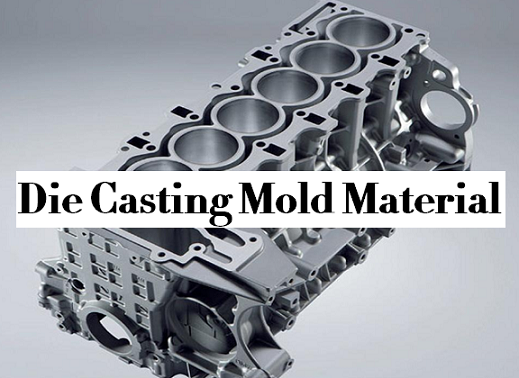The Ultimate Guide To Stahl Specialty Company
The Ultimate Guide To Stahl Specialty Company
Blog Article
A Biased View of Stahl Specialty Company
Table of ContentsNot known Facts About Stahl Specialty CompanyGetting My Stahl Specialty Company To WorkThe Greatest Guide To Stahl Specialty Company6 Easy Facts About Stahl Specialty Company DescribedThe 4-Minute Rule for Stahl Specialty Company
There are many minor distinctions in between functioned and cast aluminum alloys, such as that cast alloys can consist of a lot more substantial quantities of various other steels than functioned alloys. The most noteworthy difference in between these alloys is the manufacture process with which they will certainly go to provide the final item. In addition to some surface treatments, cast alloys will certainly exit their mold and mildew in virtually the exact strong kind wanted, whereas wrought alloys will certainly undergo numerous modifications while in their strong state.If you think that a wrought alloy may be the best for your task, take an appearance at some of our articles that explain even more concerning particular wrought alloys, such as Alloy 6061 and Alloy 6063. On the various other hand, if you assume a cast alloy would certainly be much better for you, you can discover more concerning some cast alloys in our Alloy 380 and Alloy 383 write-ups (coming soon).

Having the experience and industry expertise to engineer your spreadings for optimum manufacturing and top quality outcomes will certainly improve the project. Making aluminum castings calls for a complicated collection of processes to attain the appropriate outcomes. When picking a brand-new aluminum factory to partner with, ensure they have extensive industry experience and are knowledgeable regarding all facets of the light weight aluminum casting process: style, manufacturing, material analysis, and product testing.
Stahl Specialty Company Things To Know Before You Get This
The shop should likewise have a tried and tested performance history of providing remarkable items that fulfill or go beyond consumer expectations. Quality control must additionally go to the top of your listing when selecting a light weight aluminum foundry. By collaborating with a certified shop who adheres to the criteria for high quality control, you can shield the honesty of your item and guarantee it fulfills your requirements.
By choosing a firm that supplies services that meet or surpass your item requirements, you can be sure that your job will be finished with miraculous precision and effectiveness. Specific light weight aluminum factories specialize in particular kinds of manufacturing processes or casting techniques. Different parts call for different manufacturing techniques to cast aluminum, such as sand spreading or die spreading.

Pass away casting is the name provided to the process of developing complex metal elements through use molds of the component, likewise understood as dies. The procedure makes use of non-ferrous steels which do not contain iron, such as light weight aluminum, zinc and magnesium, as a result of the preferable buildings of the metals such as reduced weight, greater conductivity, non-magnetic conductivity and resistance to deterioration.
Stahl Specialty Company Things To Know Before You Get This
Pass away spreading manufacturing is fast, making high production levels of elements very easy. It produces more elements than any type of various other procedure, with a high level of precision and repeatability. For more information regarding die spreading and pass away spreading products used while doing so, continued reading. There are three sub-processes that fall under the classification of die spreading: gravity pass away spreading (or irreversible mold and mildew spreading), low-pressure die spreading and high-pressure die spreading.
After the pureness of the alloy is examined, passes away are produced. To prepare the dies for casting, it is important that the passes away are tidy, so that no residue from previous productions remain.
The pure metal, also known as ingot, is included to the heater and maintained at the molten temperature of the steel, which is then transferred to the injection chamber and injected into the die. The stress is after that kept as the steel strengthens - Foundries in Missouri. Once the steel strengthens, the cooling process begins
The thicker the wall of the part, the longer the cooling time as a result of the amount of interior steel that also needs to cool. After the part is totally cooled down, the die halves open and an ejection device presses the component out. Following the ejection, the die is shut for the next shot cycle.
8 Easy Facts About Stahl Specialty Company Explained

However, this proved to be an incorrect test, because the tester can reduce into a piece and miss out on a location with porosity. Today, top producers use x-ray screening to see the whole interior of components without reducing into them. This allows them to more properly accept or reject parts. To obtain to the finished product, there are 3 primary alloys used as die spreading material to select from: zinc, light weight aluminum and magnesium.
Zinc is one of the most used alloys for die casting due to its reduced cost of raw products. Its rust resistance additionally allows the elements to be long long-term, and it is one of the much more castable alloys due to its reduced melting point - Casting Foundry.
Everything about Stahl Specialty Company
As discussed, this alloy is just one of one of the most generally used, yet manufactures will, advice at times, select aluminum over zinc due to aluminum's production benefits. Aluminum is highly cost-effective and one of the much more versatile alloys. Aluminum is used for a number of various items and sectors anything from home window frameworks to aerospace materials.
Report this page